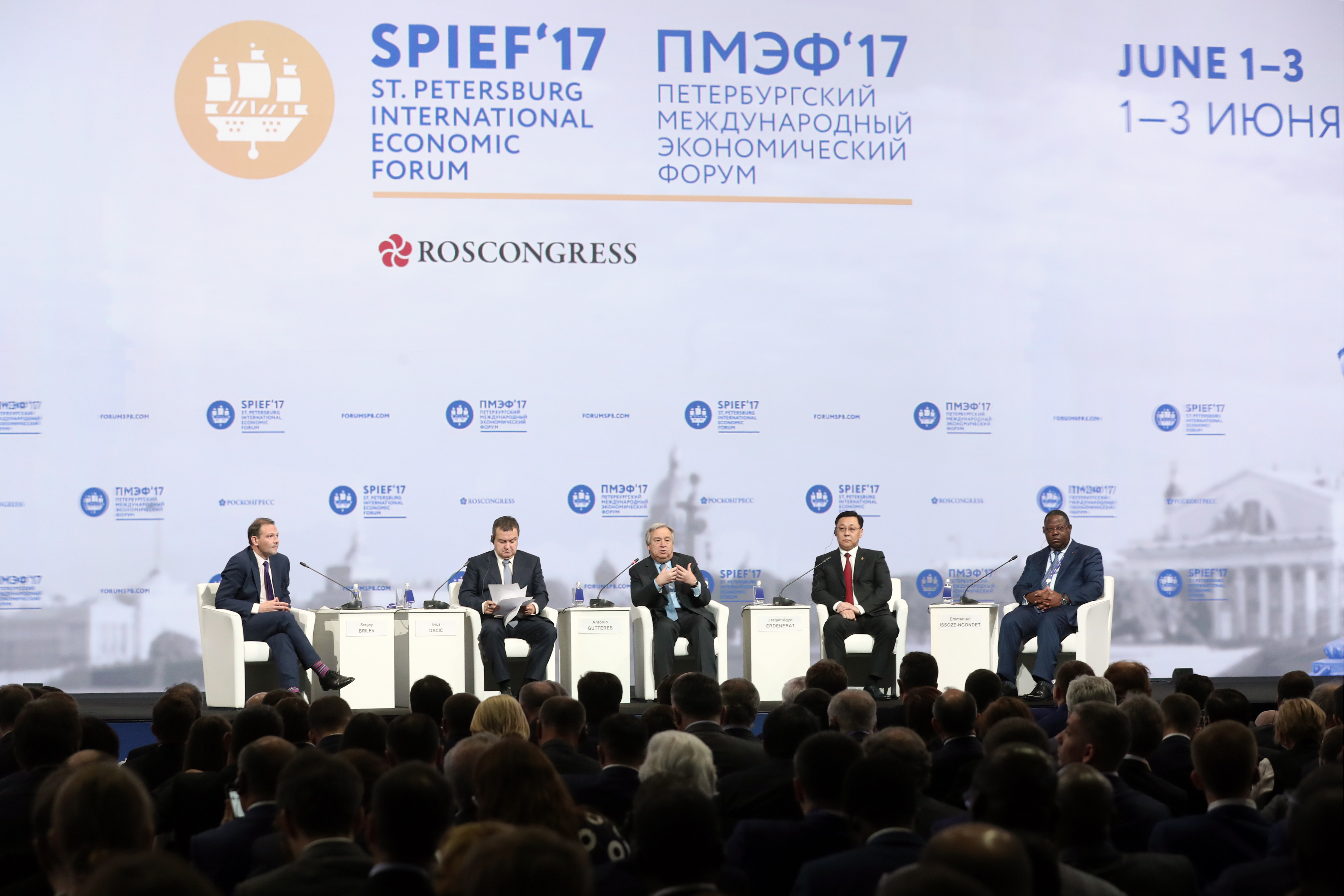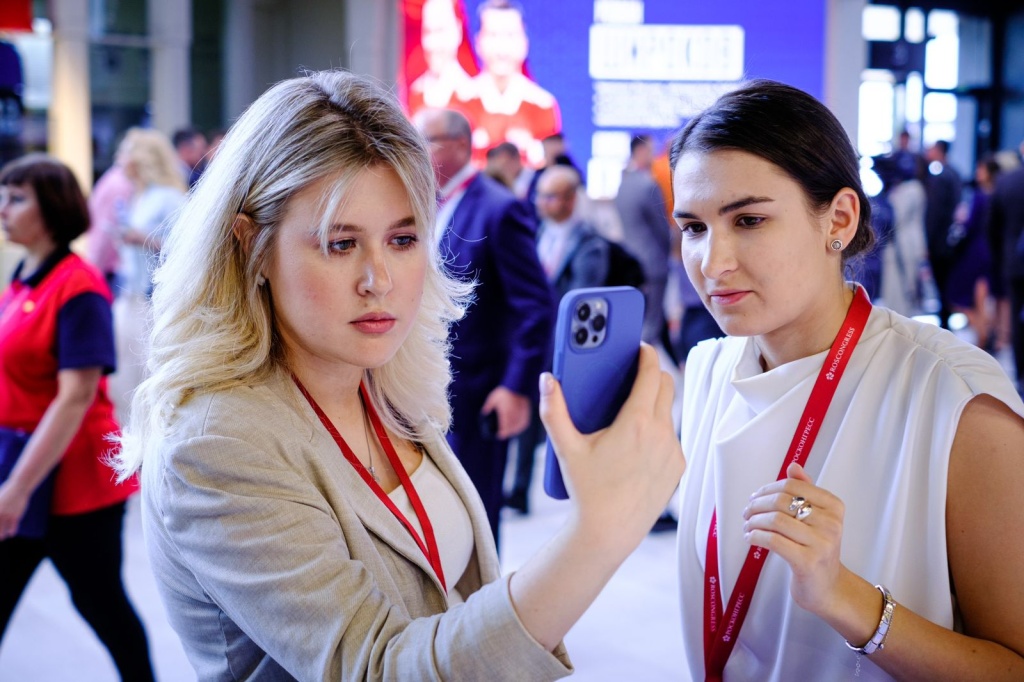
Foreign Guests’ Speeches at the Forum Opening
António Guterres, Secretary-General of the United Nations, spoke at the panel session that was held after the Forum’s Opening Ceremony. In his speech, he touched upon such a problem as a “deficit of trust”. In particular, he believes that there is a dearth of trust between society and the political establishment. António Guterres said that the global economy growth did not resolve the problems of people and countries. He has reminded his audience that various countries have the so-called “rust belts”, industrial neighbourhoods whose population lives in poverty. Therefore, he stated, the UN sees its role in being more oriented toward people’s needs, in settling conflicts, and in supporting states in their fight against terrorism. “The entire society should be mobilized to fight these new challenges,” he emphasized.
Ivica Dačić, Acting Prime Minister and Minister of Foreign Affairs of the Republic of Serbia, started his speech by thanking Russia for the invitation to the Forum. “Serbia will never impose sanctions on Russia. For us, it is not only a question of politics, it is a moral question. Our friends remain our friends,” he said with certainty. Ivica Dačić expressed his hope for future development of bilateral relations between the two countries. At the same time, he noted that his country was not a member of the Eurasian Union. “We are not part of that region,” Mr. Dačić said. He reminded the audience that Serbia had recently held presidential elections. “The new government will pursue the same policies as the previous government and Serbia will be a factor of stability and peace in the region,” he assured the audience.
Jargaltulgyn Erdenebat, Prime Minister of Mongolia, spoke about the need to develop ties with Russia. He spoke about his country joining the ‘One Road, One Belt’ programme, about signing the programme for developing economic corridors between Russia, China and Mongolia, and about enhancing Mongolia’s cooperation with neighbouring states. In particular, he noted that the introduction of a visa-free regime between Russia and Mongolia had made it possible to stimulate trade and tourism.
Emmanuel Issoze-Ngondet, Prime Minister of the Gabonese Republic, noted that he viewed Russia as a strong partner and hoped Russian specialists would become interested primarily in such areas as mineral production and mining production. “We believe we need to build relations with a strong Russia,” he stressed.
António Guterres agreed that a dialogue with Russia was of crucial importance for resolving global problems. According to him, that primarily applies to global politics and environmental issues. Russia’s scientific potential, the UN Secretary-General believes, can play a huge role in developing new technologies. He noted that mankind was going through the fourth industrial revolution, which would affect the employment market.
Jargaltulgyn Erdenebat reminded the audience that climate change and its influence on the environment remained a challenge every country is facing. “Our business faces the task of developing environmentally safe technologies,” he said. He also noted that new automation-orientated technologies were not an absolute good. “We should develop the human factor. People should work, see the results of their work, and provide for the needs of other people,” the Prime Minister summed up.








